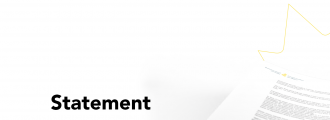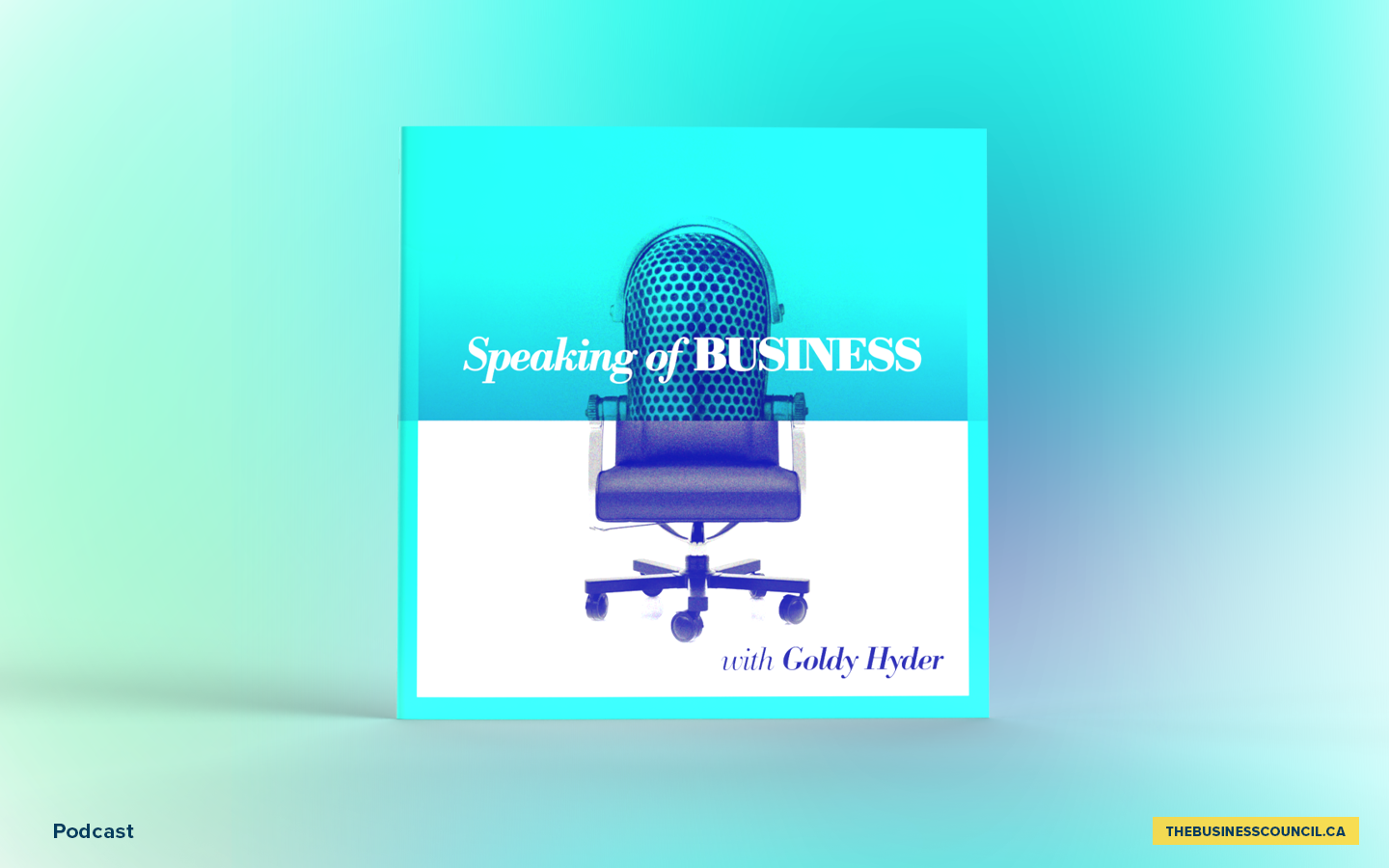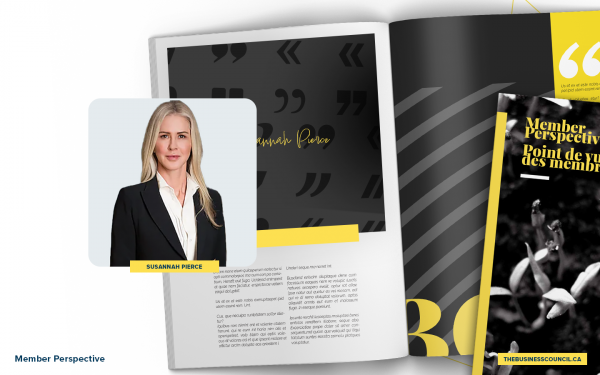Like a tap being turned off and at the other end you’ve got an open sinkhole
In light of the COVID-19 emergency, we’ve temporarily suspended our regularly scheduled series of conversations with Canadian CEOs. But we’re not going away. Instead, we’re going to pivot to the health emergency itself. We’re going to explore the impact on companies and workers across the country. And we’re going to find out how business leaders are responding to crisis.
“Like a tap being turned off and at the other end you’ve got an open sinkhole.” Ed Sims, President and CEO of WestJet, describes the effects of a precipitous drop in airline travel, how COVID-19 compares to other crises, repatriation flights to countries WestJet has never flown to before, and why his colleagues are “battle-scarred but still smiling.
Latest Podcasts
Transcript
Goldy Hyder:
Welcome to a special edition of Speaking of Business. I’m Goldy Hyder of the Business Council of Canada. When was the last time you saw a plane flying overhead? Between border closures and restrictions on non-essential travel, the COVID-19 outbreak has been devastating for the air transportation sector. In fact, WestJet says the number of passengers flying on its airlines is less than 5%, let me repeat that, less than 5% of pre-pandemic numbers. How are they dealing with this unprecedented situation? Ed Sims is the President and CEO of WestJet and he joins me now. Welcome to the podcast Ed.
Ed Sims:
Happy to join you, Goldy. Thank you.
Goldy Hyder:
These are staggering numbers on the impact in terms of how hard your industry has been hit with the shutdown. Can we just start by having you give me a sense of the impact that this has had on your business?
Ed Sims:
It’s impossible to overstate. I’ve never seen a drop-off as dramatic and significant. It really started on a Sunday evening. I think, from memory, it feels like another lifetime ago, but it was actually February the 29th, the leap- year day, when I suddenly started noticing numbers that we’d normally see in millions appearing in thousands. It was that dramatic, or hundreds of thousands, and we suddenly saw this incredible drop off. We were taking about 10% of our daily revenue and I thought that was pretty dire as an indication of how strongly the corona virus was starting to bite demand. Within a couple of days, literally a couple of days, I started seeing net cancellations outstrip new bookings and the combination of both. If you think of it like a spigot, like a tap being turned off and at the other end, you’ve got an open sinkhole. You’ve got effectively a drain where costs are flooding out of the business.
Ed Sims:
It was that dramatic that, within those couple of days, we suddenly saw a lost revenue in the tens of millions of dollars. Costs continuing to accumulate and these net cancellation suddenly outstripping new bookings. So literally within the space of a week, we had seen all of the good work, and the aviation industry had been in very, very good shape during 2019, continue to be in good shape in January and February. All of the good work that had gone into January and February was effectively being destroyed within a couple of weeks of March. Now, I’m one of those unfortunate characters people describe as a veteran of the industry. I’ve been through Gulf Wars, went through 9-11, SARS, MERS, swine flu, Icelandic volcanoes, GFCs. All of these have had desperate effects on the aviation industry. Our typical response to events of this magnitude would be to set up an emergency response centre, that’s nothing unusual.
Ed Sims:
We call it our incident command centre where all instructions and directions to the business are given. The longest I’ve ever been in an incident command center or full emergency response mode previously has been a couple of weeks. We are now on day 48 of our incident command centre. So it’s not just the severity of the drop off that saw that drop down to the numbers you mentioned earlier of less than 5% of our revenue currently being generated. But the length of time this has gone on has just been extraordinary.
Goldy Hyder:
No end in sight?
Ed Sims:
And no end in sight and planning cycles become extraordinarily difficult because, thankfully the government intervened with the CEWS, the wage subsidy program, but that itself, as the government have been quite public about, it comes to an end on June 6th. That is the government’s policy. We know they have stated how much this has cost the taxpayers of this country: over $72 billion and counting. And we are in this difficult position where we are having to lay staff off putting them effectively on standby on that wage subsidy program. But we are literally a matter of weeks away from facing even greater uncertainty. So no end in sight, a lot of anxiety, a lot of confusion, and certainly no short term return to the demand levels that we saw earlier this year.
Goldy Hyder:
Now, of course when it comes to airlines, it’s not a light switch. We don’t decide one day the virus has gone and the next day we’re going to run planes. There’s a lot of logistics that go into this and there’s a timeline. Can you take us through how you feel the industry can get back to some form of a restart when that time comes Ed?
Ed Sims:
That’s absolutely right. Even we are seeing weakness out to the fourth quarter and that’s looking out at October, November, there is clearly anxiety. We could still be in some state of social isolation, some state of lock-down that far out because nobody knows and nobody knows to use an off-repeated phrase. We think it’s highly unlikely now that this is going to be V-shaped, we think it’s less likely it’s going to U-shaped. If it’s L-shaped or W-shaped, then the rate of re-infection, the rate of continued spread may not be contained within the next few months. And that continues to cause obviously deep-seated anxiety here in Alberta right across the province, which is already getting hammered with this record drop in oil prices, but also with the sense of people feeling isolated, not having the ability to conduct their normal business by traveling around the country and clearly causing a great deal of anxiety for our staff who are being stood down.
Goldy Hyder:
Yeah. I remember your founder saying to me a long time ago, in interactions we had in another context, that the only time airlines make money is when planes are in the air and right now, not a lot of planes are in the air.
Ed Sims:
Absolutely. It’s heartbreaking for all of us, but particularly here in Calgary, you know we’ve got 49 aircraft parked right around my office. So while there are very, very few people working from the office, I’ve continued to come in because I think the sense of routine for certain areas, particularly like our operational centre and our contact centre, it is important for people to see me and to hear from me and know that I haven’t abandoned them in any shape or form. But it does mean that every day I’m driving past at least 50 parked aircraft and exactly as you say, these are expensive machines. They’re beautiful precision aircraft, they’re very young aircraft. The average age is no more than six or seven years old. They shouldn’t be sitting on the ground, but we have no choice.
Goldy Hyder:
An under-utilized asset like that, obviously, is going to require some oxygen in terms of financial support. We have seen reaction around the world, particularly in the US, to help the aviation industry. You mentioned, of course, the tremendous benefit of the emergency response for wages for employees. What about the industry itself and what do you need?
Ed Sims:
I think this is a real cause for concern for all Canadians, not just the aviation industry. We are now at a very significant structural disadvantage to our counterparts in the US. The US had a total package of around $61 billion, but around $25 billion in direct financial relief to the major airlines of the US. That will enable them, clearly, to retain workforce. It’s enabling them to maintain a level of service higher than the level of service we’re able to maintain here in Canada. More worryingly, when we come to recover, that’s going to give them some cash cover and cash balances that we don’t have access to currently in the absence of government relief. That will enable US travelers to travel potentially at lower cost fares with more widespread availability than we will have access to in Canada.
Ed Sims:
I think that is a real cause for concern because it will be a handbrake on exactly the competitive airfares that we will need to enable the economy to recover quickly and with this more robust health because our business community, our corporate community will need to get back to face meetings to striking partnerships and unless we have competitive airfares, the US will recover faster.
Goldy Hyder:
It’s good to get that message out there. I want to go back to when the crisis broke. One of the things that both you and Air Canada responded to in terms of the call from the government was to be there and, what I would describe as a public service, to basically fly empty planes around the world to pick up Canadians and bring them back home. Take us through that decision.
Ed Sims:
Yeah, it was actually three forms of public service underway and we took a decision in consultation with the government to continue to fly to all 38 Canadian cities that we currently fly now. We may only be servicing their cities once a week, but we think it’s critically important to be moving emergency workers around the country and essential service providers around the country. The second, as you mentioned, are these repatriation flights. We’ve been flying to countries and even continents that we’ve never flown before, to San Salvador, to Guatemala, to Georgetown, Guyana, so we’ve never flown to South America. We had to apply for a special license to fly to South America. We received notification this morning that we have a special license now to fly to China where we’ve never operated before. And the third, of course, is cargo. In common with many passenger airlines around the world, we’ve quickly discovered that there is less of an embargo on cargo being able to move safely around the country and internationally than there is with passengers.
Ed Sims:
So we are rapidly growing the amount of both essential medical supplies and, of course, a critical trade carried on board passenger aircraft, not just in the belly of the aircraft, but in the main body of the aircraft. But we have now brought home tens of thousands of Canadians from places that we’ve never flown before. I’ve been delighted to see WestJetters right across the country, both our pilots and our cabin crew, volunteering. We haven’t asked anyone to undertake those flights who hasn’t volunteered. They know that they’re bringing home Canadians who would otherwise be stranded. They also know that we’re taking out to those places provisions of essential medical supplies that frankly, is a tremendous donation from Canada to other parts of the world that we know is being repaid in kind.
Goldy Hyder:
Well, certainly the families who you’ve repatriated owe you and others a great deal of thanks including the federal government for coordinating what has been a very large repatriation. As you point out, mindful of your time, there’s a couple of things I want to cover off before we wrap up. One is the issue of the restart. We touched on it a little bit. How far out are we for our potential restart of the airline sector? Is it the end of the year type thing? Is that what you’re planning on? You mentioned looking out to Q4, it’s a lot of weakness, but is there an option for Q1?
Ed Sims:
Around the start, Goldy, we were very structured in the way we considered this crisis to be in three phases. We believe we’re still in the liquidity phase, that we’re still effectively managing cash burn and keeping the lights on. The second phase, we call the stabilization phase, where we reach a schedule that we’re comfortable with and we think we’re at that now even carrying less than 5% of our normal carriage. We don’t think we’d go any further short of grounding the airline and we have no intention of grounding the airline. The third phase is recovery, we think will take place sometime between the third and fourth quarter. The third quarter is critical for airlines because, essentially, that’s where most Canadians would take their summer holidays and we’d love it to be earlier rather than later but we’re incredibly conscious of abiding within all health constraints, making sure that we’re a vehicle for the containment of the spread of the virus and not its actual spread itself. So the optimist in me says, third quarter, the realist in me is more likely to say, I think this is October, November.
Goldy Hyder:
You’re going to have to make your customer feel safe. You’re going to have to make sure that there’s a desire to fly and that there’s safety. How are you going to go about reassuring?
Ed Sims:
So we’ve had a number of activities underway. Probably the most physical has been that we’re actually socially distancing our seats. So we no longer sell middle seats on our jet aircraft and we no longer sell every other seat on our Q400 aircraft. So we are leaving a physical gap for guests on those aircraft. All of our crew are wearing full protective gear, full PPE, mid-flights. We still have our HEPA filters circulating pure air onboard the aircraft and of course we’ve been dramatically increasing both the cleansing and disinfecting of the aircraft, removing all bits of paper. For example, the in-flight magazine I think has gone for good, because I can’t have bits of paper distributed that somebody else has handled. So we’ve given a great deal of thought to ensuring that both the airports and our in-flight environment are as hygienic and sanitized as they can possibly be. And I honestly think that when guests come back and start to travel again in large numbers, they’re going to be traveling through a very, very different and far more health sensitive environment at the airports and on aircraft that they’ve ever seen before.
Goldy Hyder:
Of course, you’re already flying people around so you’ve got the experience of that to back it up as well. Let me ask a final question here Ed. You ran off a rather long list of experiences that you’ve had to have in terms of dealing with crises, but this one has certainly got to begin with a capital c and I’m wondering whether you can ever really prepare as a leader for a crisis of this nature and you talked about being seen and being heard. What are you learning and how are you changing as a leader in this crisis?
Ed Sims:
We were prepared. I’ll share perhaps three things that I think have been core to the way in which we responded. Number one, the chief executive can’t make all the decisions. I’ve delegated most of my decision making authority to this incident command centre and make sure that we have this, what we call a sit-rep, is effectively a stand-up meeting every morning, like a metronome, nine o’clock every morning and that disseminates the decisions to be made on the crisis across the business. Number two, you cannot over-communicate. We’ve had a daily sit-rep go out to all WestJetters, whether stood down or active, basically replicating information around the distribution of protective gear, around changes to our network. I’ve done a weekly webinar for all WestJetters. Yesterday we had 4,000 people on the line simultaneously on that webinar, so keep communicating, keep being as transparent as you possibly can. And the third is, I guess we’d anticipated some extent, we know that aviation is highly cyclical and unfortunately these crises have a habit of reoccurring, surround yourself with tough people. I described my colleagues as battle-scarred, but still smiling. It’s their experience and my experience collectively of having gone through these down cycles that makes you more ready to plan with potential downside risk in mind and that stood us in very good stead.
Goldy Hyder:
That’s a great place to end. A lot of wisdom in those remarks and a lot of wisdom in all of your remarks today. I want to thank you for your leadership for what you’re doing. WestJetters across the country. I know the headquarters is in Alberta, my home province, and if there’s one thing I will say, never short Alberta’s ability to fight back with its spirit and the spirit of resilience. And I suspect WestJet will lead the way.
Ed Sims:
We’ll come back fight and don’t you worry about that Goldy.
Goldy Hyder:
All right. Be well, my friend.
Ed Sims:
Thank you very much.
Goldy Hyder:
Ed Sims is President and CEO of WestJet. We’ve heard a wide range of voices and perspectives in this special series focused on COVID-19. I encourage you to listen to more of our conversations at speakingofbiz.ca or wherever you get your podcasts. Until next time, I’m Goldy Hyder, thanks for joining us. Be well.








